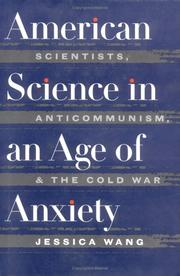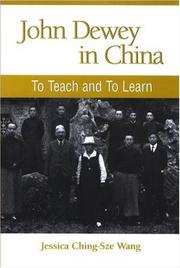| Listing 1 - 4 of 4 |
Sort by
|
Book
ISBN: 9781421409726 1421409720 9781421409719 1421409712 Year: 2019 Publisher: Baltimore
Abstract | Keywords | Export | Availability | Bookmark
 Loading...
Loading...Choose an application
- Reference Manager
- EndNote
- RefWorks (Direct export to RefWorks)
"This book examines the social history of rabies in the context of New York City and its rapid urbanization from the mid-nineteenth century into the early twentieth century. With rabies as its example, the book sheds new light on the history of human-animal relationships, medical understanding of infectious disease, and living with domesticated animals in cities"--
Animal welfare --- Human-animal relationships --- Public health --- Communicable diseases --- Zoonoses --- Rabies in dogs --- Rabies --- Biosecurity --- Community health --- Health services --- Hygiene, Public --- Hygiene, Social --- Public health services --- Public hygiene --- Social hygiene --- Health --- Human services --- Health literacy --- Medicine, Preventive --- National health services --- Sanitation --- Animal-human relationships --- Animal-man relationships --- Animals and humans --- Human beings and animals --- Man-animal relationships --- Relationships, Human-animal --- Animals --- Abuse of animals --- Animal cruelty --- Animals, Cruelty to --- Animals, Protection of --- Animals, Treatment of --- Cruelty to animals --- Humane treatment of animals --- Kindness to animals --- Mistreatment of animals --- Neglect of animals --- Prevention of cruelty to animals --- Protection of animals --- Treatment of animals --- Welfare, Animal --- Animal-borne diseases --- Communicable diseases between animals and human beings --- Zoonotic diseases --- Animals as carriers of disease --- Contagion and contagious diseases --- Contagious diseases --- Infectious diseases --- Microbial diseases in human beings --- Zymotic diseases --- Diseases --- Infection --- Epidemics --- Hydrophobia --- Lyssa --- Virus diseases --- Canine rabies --- Dog rabies --- Rabies canine --- Dogs --- History. --- Prevention. --- Diagnosis --- Abuse of --- Social aspects

ISBN: 080782447X 0807847496 Year: 1999 Publisher: Chapel Hill, NC : University of North Carolina Press,
Abstract | Keywords | Export | Availability | Bookmark
 Loading...
Loading...Choose an application
- Reference Manager
- EndNote
- RefWorks (Direct export to RefWorks)
Science --- Science and state --- History --- History

ISBN: 0791479544 1435617452 9781435617452 9780791472033 0791472035 9780791479544 Year: 2007 Publisher: Albany : State University of New York Press,
Abstract | Keywords | Export | Availability | Bookmark
 Loading...
Loading...Choose an application
- Reference Manager
- EndNote
- RefWorks (Direct export to RefWorks)
Combining biography with philosophy, this book explores John Dewey's two-year trip to China (1919–1921) and its legacy for him as a teacher and a learner. Jessica Ching-Sze Wang looks at how Dewey was received in China, what he learned, and how he was changed as a result. She examines the intriguing dynamics shaping China's reactions to Dewey and Dewey's interpretations of China, and details the evolving process in which Dewey came to understand China on its own terms, rather than from Eurocentric perspectives. Tracing China's influence on Dewey, Wang considers how his visit contributed to the subsequent development of his social and political philosophy. China provided a unique vantage point for Dewey to observe international politics, which led him to reconsider the meaning of internationalism. Also, his exposure to Chinese communal culture enabled him to reject the Western preoccupation with democracy in politics and to emphasize democracy as all-encompassing culture. Finally, Wang discusses how Dewey's own observations and appraisals of Chinese society can give credence to the notion of Confucian democracy for China.
Political science --- Education --- Social sciences --- Political philosophy --- Social philosophy --- Social theory --- Philosophy. --- Dewey, John, --- Tu-wei, --- Tu-wei, Yüeh-han, --- Dyui, --- Dʹi︠u︡i, Dzhon, --- Dyuʼi, G'on, --- Дьюи, Джон, --- ديوى، جون، --- 杜威, --- Dīvīy, Jān, --- ديويي، جان --- China --- United States --- Foreign relations --- Philosophy --- Dīwʼī, Jān, --- Dīwiʼī, Jān, --- ديوئى، جان --- Diyūʼī, Jān, --- Dyūwi, Jon, --- Dyūi, Jon, --- デューウィジョン, --- デューイジョン, --- ジョン・デューウィ, --- ジョン・デューイ,
Book

ISBN: 9781501777585 1501777580 Year: 2024 Publisher: Ithaca, NY : Cornell University Press,
Abstract | Keywords | Export | Availability | Bookmark
 Loading...
Loading...Choose an application
- Reference Manager
- EndNote
- RefWorks (Direct export to RefWorks)
Thinking Otherwise addresses the question of what makes a great historian by exploring the teaching and scholarship of Walter LaFeber, widely acclaimed as the most distinguished historian of US foreign relations. This volume of essays, edited by Susan A. Brewer, Richard H. Immerman, and Douglas Little, is a testament to a scholar who published more than a dozen books during his time at Cornell University, where he delivered legendary lectures for half a century. The chapters trace LaFeber's journey as a scholar and demonstrate his enduring influence on the history of US foreign relations by linking six of his monographs to his abiding concern about the fate of the American experiment from the 18th century to the present. Thinking Otherwise explains and assesses the scholarship of a historian whose work became canonical in his lifetime and continues to resonate throughout public policy debates.
| Listing 1 - 4 of 4 |
Sort by
|

 Search
Search Feedback
Feedback About UniCat
About UniCat  Help
Help News
News